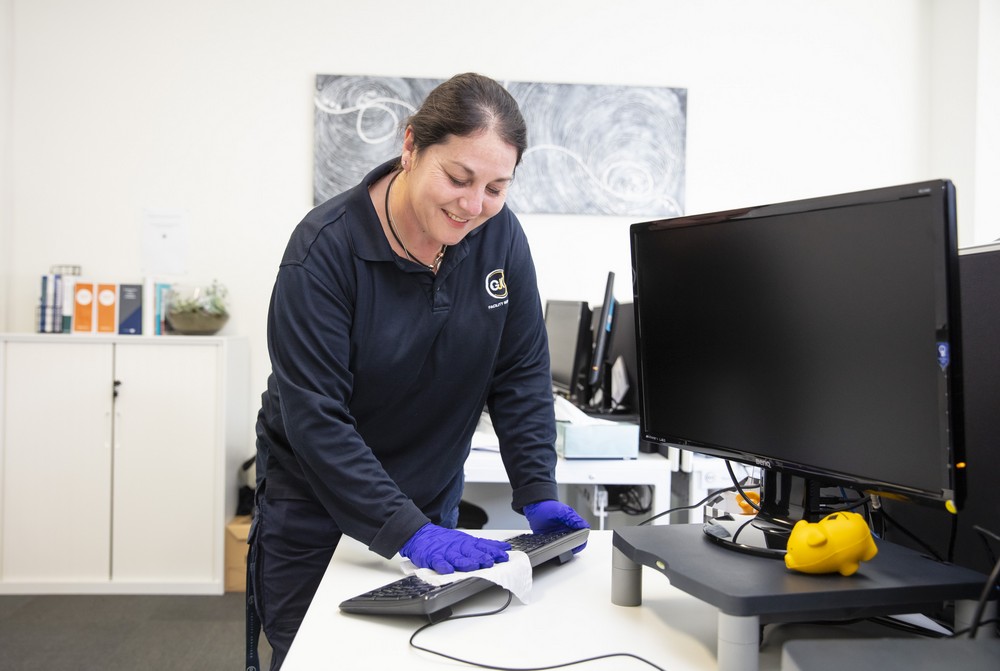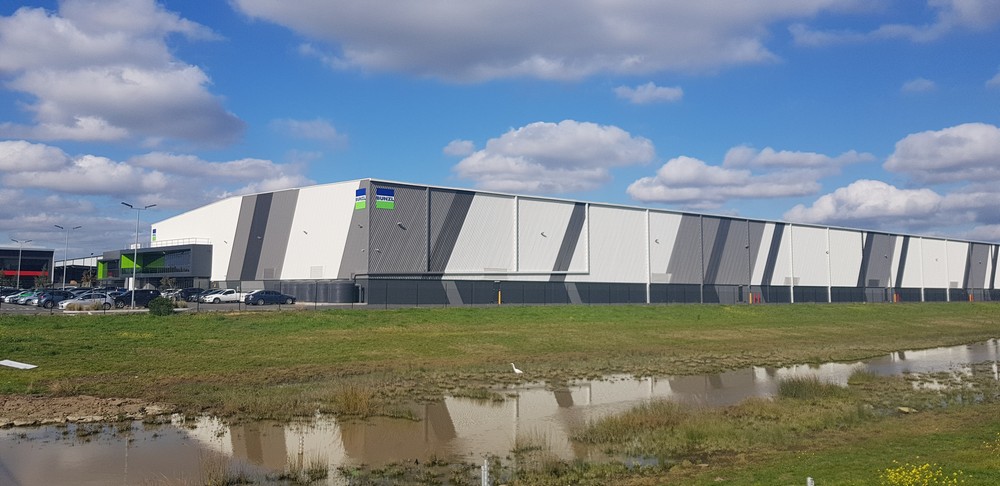
Interactive Training International (ITI) is raising the bar for independent training standards with its purpose-built interactive training facility.
ITI, a division of Advanced Specialized Equipment, is an independent, education, training and certification body for the cleaning and restoration industry.
ITI offers a wide of training for industry professionals including technical certification training, advanced designation training as well as business building courses.
Formed in 2011 as an IICRC training school, ITI moved away from theory-based training in late 2016 to create its own hands-on training experience, with Restoration Sciences Academy, one of the industry’s largest global training organisation.
This shake-up led to the opening of the company’s $1 million state-of-the-art interactive training house – understood to be the first of its kind in the Southern Hemisphere at the time of its launch in 2016.
Today the facility is one of a handful of similar constructions around the world. The fully furnished, two-storey house is designed to show students real-life scenarios and provide trainees with hands-on training in real simulations.
“Most of us learn through practical experience,” explains Grant Hickey, general manager of Advanced Specialized Equipment.
“Before we opened the house, participants of our training thought the theory-based model was great, however, the feedback we kept getting was that they wanted more hands-on training and experience.”
The house is equipped with functional household amenities as well as an operational bathroom and laundry.
“With the creation of the house we were able to make sure that every class offers some practical training. It’s our point of difference that we can teach theory as well as offer practical education, which we have found has had a far better response among our trainees.”
The house is fully flooded via a state-of-the-art fire sprinkler system so trainees can go through the process of completely restoring the house and furnishings. for courses such as structural drying.
The training house can be flooded with 5000 litres of water to create a real-world water-damage scenario. It also features crawl spaces so trainees can experience what is happening in all areas at all stages of the water drying process.
Fire can also be simulated to expose students to the unpredictable nature of smoke and odour contaminated areas.
“In the latest two schools ITI has held we’ve taken the groups to physical fire jobs. They’ve gone out on-site and done the job as part of the curriculum – you can’t get more real life than that!”
CCTV cameras are also fitted throughout the house, with a live feed back to the lecture theatre, so trainees can observe and learn from exactly what’s happening in the house in real time. ITI is currently waiting for approval to build a second, smaller training facility house in Brisbane.
Moving with the times
Hickey says the format of ITI’s training allows for more flexibility and scope to offer additional courses. The average course length is around four days, however, several ITI schools are now combined such as its Fire & Smoke Restoration & Complete Odour Control training course, in an effort to reduce attendance time and cost for trainees.
“The way people learn continues to change. In the schools we also cover business topics, which diverts from the model we originally taught, but we now have the allowance to do that. We aren’t restricted by structured requirements.
“If we have a new piece of equipment or technology that we think is suitable for the industry or is going to change the industry we have the ability to change the course documentation accordingly.”
More than 2000 people from Australia and New Zealand have undertaken ITI courses which include Damage Restoration; Carpet, Upholstery, Leather & Fine Fabric Care & Complete Spot & Stain; Fire & Smoke Restoration & Complete Odour Control and Stone Masonry & Hard Surfaces Restoration. Others available courses include Trauma Scene Clean-Up and Mould Remediation.
Last year Advanced Specialized Equipment and ITI hosted their first education and networking seminar session in Brisbane, as part of its newly created business program, Guess Who’s Coming to Breakfast?
The business breakfast series was the brainchild of Grant Hickey’s father John Hickey. The inaugural breakfast session included a presentation by Australian Olympic swimmer and Brisbane local Duncan Armstrong.
Hickey said the idea was for attendees to reassess what they’re doing, show them how they can do it differently and not put any limits on themselves.
“The whole premise was to change people’s thinking from what they’re doing now to where they can go. One of the biggest challenges with operating a small business is the fact that no one ever tells you how to run a business.
“There’s always work in our industry. Even in tougher times, there’s always going to be work and if [people] are trained accordingly, they have the ability to continually work. They don’t have to be stagnate. People in this industry have the opportunity to always earn more money and work all around the country, even around the world!”
Hickey warns those that fail to keep pace and adapt to new systems and processes will be left behind. As he explains: “Water intrusion techniques have changed greatly, however, there are still people that might have undertaken a class 10 or 15 years ago and are still doing the same procedures.
“Our industry is a lot like the electronics industry. It’s changing at a rapid pace and you can’t adhere to what we did 10 or 15 years ago. Times have changed and people are wasting – and losing – money and making their lives difficult by doing things the old way.”
He says while the will to change can be difficult for some, the sector would benefit by setting a clear benchmark.
“Even though there are some great restoration and cleaning companies operating, the industry as a whole could be far better off by being able to offer a standard that’s the same throughout.
“As an industry we have become our own worst enemies. Companies that haven’t had proper business training think the only to get work is to base it on price, not by showing the quality of work or services offered. By setting a clear standard this would provide not only an industry benchmark, but a standard for other sectors that work with us such as the insurance industry.”
Personal touch
Advanced Specialized Equipment was founded by the Hickey family in 1994. The family-owned and operated company is now a leading supplier of commercial cleaning and restoration equipment in Rydalmere alongside the training facility.
Hickey says the key to the family business’ longevity is its ability to adapt. “Over the years my parents were always willing to accept change which meant we could make the business stronger.
“There are companies out there not willing to change because they don’t have a clear vision for their business. Our goal is not only to provide education, but to provide new ways of thinking.
“At the end of the day we want to see businesses succeed. But a lot of business owners aren’t confident enough in themselves or their business to think they can succeed. Our training can help improve that mindset and make them more confident about the services and quality they provide and in turn the price they charge.”
Hickey says another benefit of ITI’s training facility, which also houses a lecture theatre for its theory-based components, is to be surrounded by like- minded people.
“What you learn from the facilitator conducting the class is one thing, but what you learn from others attending the class is another. It might be one piece of advice from someone that could change someone else’s business entirely.”
ITI’s key objective is not just to provide ‘one off courses’, but complete career education, catering for beginners right through to continuing education for long-term industry professionals.
“Retention of staff generally comes back to how you treat your staff and how you work with them. I know people who say ‘I don’t want to train my people because they’ll leave me’. But those people are probably going to leave you either way if you have that mindset.
“People leave because they don’t fit, or the employer might not fit them, but that’s the reality of business. You must keep trying. The day you decide to stop trying you may as well give it all up.”
Hickey recommends carpet and upholstery training be conducted every few years, while water restoration and structural drying should be completed every 18 months to two years.
“Every team member of the business should participate in training. If everyone is on the same page it sets not only company-wide standard, but an industry-wide standard.
“‘Everyone needs to take something away from our training. It might be one small bit of information, or it might be a whole lot of information. But my advice for those considering a course is to come in with an open mind, don’t be guarded, speak up and absorb what is being spoken about. If you do that then you will have a great time and take away so much important information.”
For more information on ITI visit: www.itiworld.com.au






Gary Oskay on: Industry Leaders Forum: Wayne Hill, CEO, RapidClean Group
John Ford on: Industry Leaders Forum: Joe Camilleri, Managing Director, Central Cleaning Supplies
Jasmine Soh on: Empowering the Oceania Cleaning and Hygiene Industry: INCLEAN Unveils Its Unified Magazine